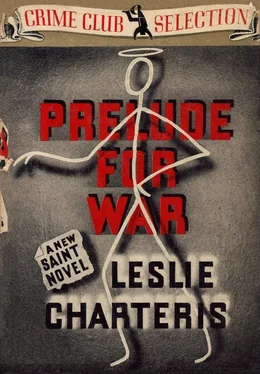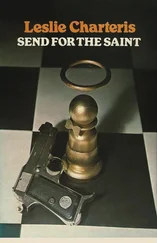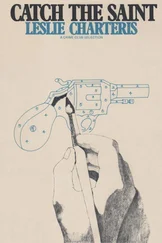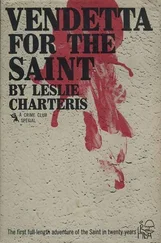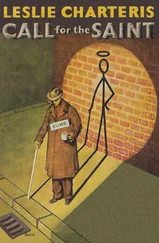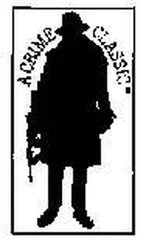The latter part of the dossier was devoted to the Sons of France considered as part of a sales-promotion campaign backed by Luther and his associates. There was an educative outline of the machinery of the organization, some eye-opening copies of secret orders issued to members, specimens of its propaganda and declared objectives, in the usual Fascist jargon—"to eradicate Communism, Pacifism, and all such Jewish-inspired undermining of the heroic spirit of France… To institute state control, for the benefit of the people, over literature, art, motion pictures, radio and all other means of disseminating culture… To build up the military, naval and air strength of France so that French honour may be prepared to answer the insolence of the Hun." There was good evidence of financial support given to the organization by Luker and certain directors of the Fabrique Siebel des Armes de Guerre — but that, as Simon had pointed out to Teal, was probably not an offence under the law. There were a number of detailed records mostly made up from newspaper cuttings of certain rather revolting acts of violence and terrorism committed by alleged members of the Sons of France, but there was no evidence by which Luker and his associates could have been brought to book as their direct instigators. Certainly there was enough material to have brought down on Luker's head the moral indignation of the whole world, if the world had had any moral sense; but in the way of legal evidence of recognized crimes there wasn't enough to get him as much punishment as he would have earned by driving his car down Piccadilly at thirty-five miles an hour.
The last page of all was a sheet torn from a cheap memorandum block, on which someone seemed to have made a note of three functions or events, with their dates. The first and last were so heavily scored out as to be practically undecipherable, but the middle one was left plain and untouched in the centre of a frame of doodling arabesques such as a man draws on a pad during a conference. It read:
25 aout: Ouverture de I'Hospice de Memoire,
а Neuilly, par M. Chaulage.
Fastened to it with a detachable clip was a photograph of three men, one of whom was Luker, apparently talking in an office. And in the bottom corner of the memorandum sheet was pencilled in a different hand, so quick and careless as to require a clairvoyant to read it:
Remember the R—?
The last word eluded even the Saint's powers of divination. And that was all there was.
Simon Templar lighted another cigarette with the dispassionate detachment of a machine. He was more cold and grim than the girl had ever seen him, or had ever realized that he could be. He looked up at her with blue eyes that bit with the intolerable glittering cold of interstellar space.
"Come here," he said.
No power of mind that she could conceive could have disobeyed him.
She came over, in spite of herself, like a mindless robot. He took her hand and drew her down on to the bed beside him.
"Is this all there ever was in this package?"
"I–I think so."
"Have you taken anything out?"
"No."
He knew she was telling the truth. As he was then, she could never have made him believe a lie.
"Was the envelope sealed when you put it in the checkroom?"
"Yes."
"It didn't look as if it had been tampered with when you got it out?"
"No."
But there he knew he was on the wrong tack. If Luker and Company had been able to get at the packet, they wouldn't have left any of it. And if they had known where it was, in order to tamper with it, they wouldn't have been going to such lengths to locate it.
This was all that there had ever been. And this was what Kennet and Windlay had died for.
He had expected that that dossier would give him a light that would make clear all mysteries, and instead it had only given him a darker riddle. He stared at that enigmatic last sheet with a glacial and immobile fury. Whatever Kennet and Windlay had been murdered for must be hidden there — he was as sure of that as he could be sure of anything, but that was no help to him… In a sudden uncontrollable defining of his belief he ripped off the rest of the heavy batch of papers and tossed them into her lap.
"There you are," he said. "You can have 'em. If there's anything there that's worth a penny more than the News of the World would pay you for it it'll take somebody a lot cleverer than me to dig it out."
"That's very nice of you," she said. "Anything that's no use, and you don't want, I can have. What's that page you're keeping?"
"I wish I knew."
"May I see it?"
She was sitting straight up, with a curious distant dignity.
He looked at her. In his mind was a nebulous puzzlement that he could not bring into sharp focus. She had not asked for terms then, nor did she go on to ask for them, but he didn't seem to have enough attention to spare for that.
He moved the paper a little, and she read it over his arm.
" 'The twenty-fifth of August — Opening of the Hospital of Memory—' "
" 'The Hostel of Memory, at Neuilly,' " he said. "I've heard something about it. It's an old chateau converted into a sort of Old Soldiers' Home, endowed by the French government for disabled veterans of the Great War to end their days in in reasonably pleasant surroundings."
" 'By Monsieur Chaulage,' " she read. "Isn't he the president, or the premier, or something?"
He nodded, and a recollection struck him like a deadened blow.
"And tomorrow is the twenty-fifth of August," he said.
She stared at him with wide expressionless eyes. There was nothing definable that her eyes could have expressed. She was as nonplussed as himself. They gazed at one another in the barren communion of hopeless bewilderment, knowing that here was something that might make their blood run cold if they could understand it, and yet not knowing what to fear.
Presently she looked at the sheet again.
"What's the rest of it?" She leaned over further to peer at the spidery scrawl across the corner. " 'Remember the—' What is it, Simon? It looks like 'Rinksty.' "
"You're as good a thought reader as I am. Does it mean anything to you?"
"Nothing."
An idea crossed his mind.
"Do you know the handwriting?"
"Of course. It's Johnny's writing."
"Johnny's! Then you must know what it means — you must be able to read it—"
She shook her head.
"But I can't! Nobody ever could, when he wrote like that. Usually he wrote quite neatly, but when he was in a hurry he just scrawled things down like that and if you were lucky and you knew what he was likely to be writing about you could sometimes guess what the words were from the first letters and how long they looked."
"But he meant this for you. He scribbled it on the page to make you think of the point. 'Remember the Rinksty?' — or whatever it is. He thought it would mean something to you. Is it something that he'd told you about before when he was talking? Is it a ship? Is it a hotel? Is it a pet name of your own that you had for some place where you used to meet — some place where he might have told you about this? For God's sake, think!"
The Saint's voice hammered at her with passionate intensity; the grip of his fingers must have been bruising her arm. Somehow he was neither pleading nor commanding, but his fire would have melted stone. She was not stone. She twisted her fingers together and looked here and there, and her face was crumpled with the frantic effort of memory; but her eyes were big and tragic when they came to his face again.
"It's no good," she said. "It doesn't ring a bell anywhere. It isn't any place we went to, I'm sure of that."
"Or anything he talked about?"
"He used to talk about so many things, but as I told you I never paid any more attention than I could help, because it all seemed so frightfully earnest and important and I'm much too young to start bothering about important things."
Читать дальше
